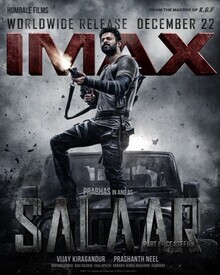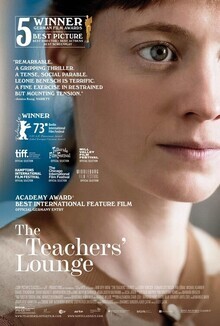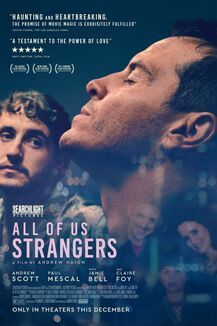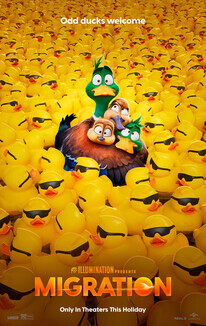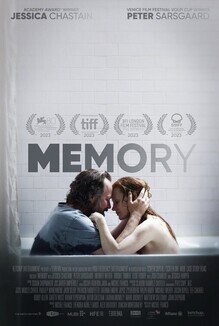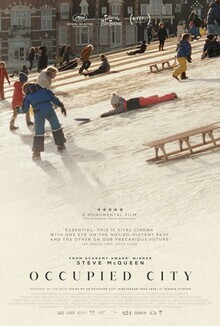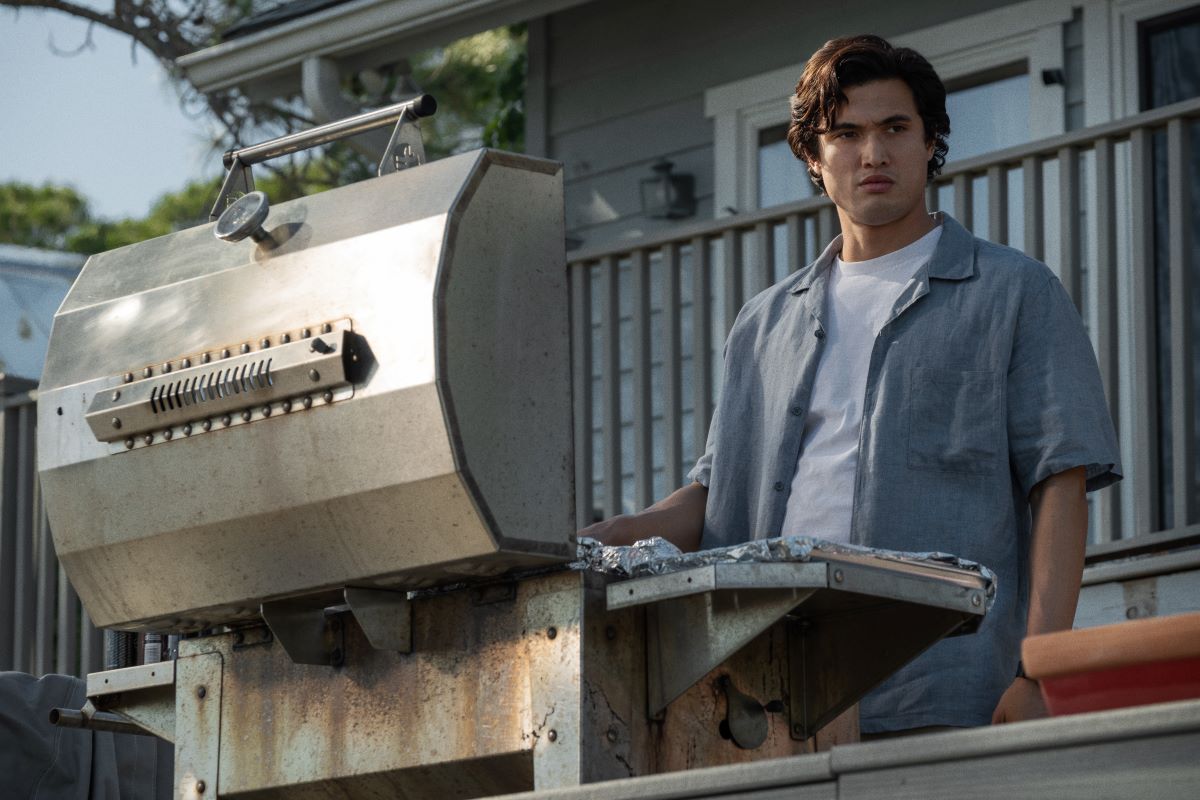
In "May December," now on Netflix, Todd Haynes may mine humor from Natalie Portman’s Elizabeth, an actress investigating the lives of controversial figure Gracie Atherton-Yoo (Julianne Moore), who was arrested in the '90s for sleeping with a 13-year-old when she was 36, but it is Charles Melton as Joe who singlehandedly changes the film's tone whenever he’s on screen.
Melton delivers one of the year's most unforgettable and shattering performances. And most of it is stemmed through expression and action more than dialogue. Even in a film that stars Oscar winners Moore and Portman, it’s Melton who leaves you breathless.
RogerEbert.com hopped in a call with Melton the afternoon following his Best Supporting Actor Gotham Awards win and discussed his process in crafting Joe, how he used his army brat background for his performance and collaborating with Todd Haynes.
Were there any challenges in playing an older character such as Joe?
Yeah, I think there are a few challenges, but I mean, Sammy's script provided such an opportunity to explore Joe. She just laid out this beautiful roadmap. There was so much in between the text, and it really allowed me to just dive into who this man was as far as a father at such a young age with so much responsibility being a provider for his family, being a loving husband, and just really understanding all those responsibilities he had at such a young age. And the arrested development and how that would just translate and transform into his physicality and how he moved, walked, and talked in life.
When it came to reading the screenplay, what was your first reaction to who Joe was and trying to build him from the page?
I really felt this intuitive, this innate connection with Joe. There's this sense of oppression and loneliness that I was really attracted to. I think as an actor, we come to a character without any sort of judgment or opinions and empathy, but we also have to investigate our own experience, and find parallels of feelings that could be. Though the circumstances are different, the feeling is the same. It made me think about my father. My dad was in the Army for 20 years, and I grew up an army brat. I remember at the age of 11, my dad sat me down and gave me this whole inspirational speech, and my dad's my hero. He talked about just being a big brother, taking care of my mom, my two younger sisters, and responsibility and honor, integrity. It was very inspiring, and he told me this the night before he went away to serve in Desert Storm for a year while we were stationed in Germany. So that's much responsibility for a kid at a young age, and you're so excited to step up to the plate and take on that responsibility. The feeling kind of gave me more of an insight into Joe. Because Joe, at 13, was a father.
And beyond just a kind of public perception and everyone probing into his life, he still had to come back home to his kid at the end of the day. And so that just, I believe, diving into the minutiae of who this man was and how he created this adaptive adult child to survive and move in life was really exciting for me.
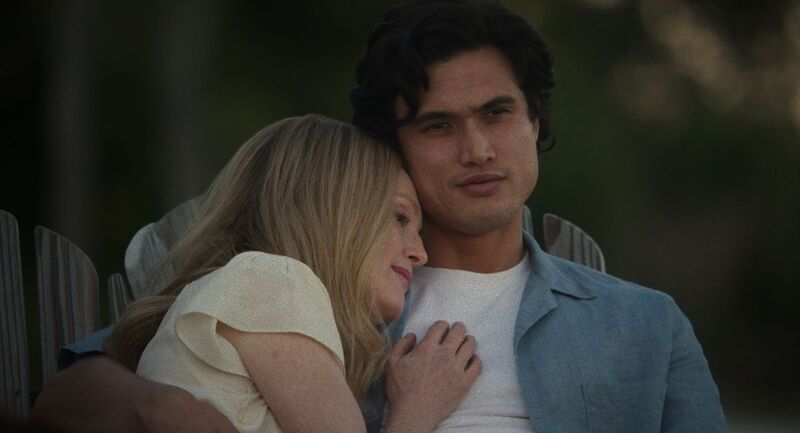
Were there any difficulties in taking the responsibility of setting this tone in between all the campiness that is within the film?
What's interesting, Rendy, is that it didn't. For those 23 days of filming in Savannah, Georgia, there was nothing that felt campiness. It was very dramatic stuff. And I think this is a matter of just having Todd Haynes being the director and leading the ship and just putting the trust in his hands. At the end of the day, we're telling these character stories, and there's so much gratitude, and it's amazing to see the audience. Todd presents this table of all these different foods, and you’re the audience member, and he’s not telling you what to eat, and you can pick and choose what you want to eat, so to speak, metaphorically speaking. And so it wasn't like, “Hey, we're going to play these for laughs.” No, it was never like that. It was just some heavy, heartbreaking stuff.
But I mean, what's interesting in the scene in Natalie's character, Elizabeth, and Joe's relationship is that she has her own motives. She’s probing and asking these really personal questions to Joe, who represents this purity and this innocence and has never really been asked these questions before or in a really long time. And he's maybe never even thought about these questions. So her acknowledging these things allows Joe to open up because his naivety is, oh, she really does care. She really does want to know. And I think just the drama and discomfort play into certain scenes that may make the audience laugh. After Joe has sex with Elizabeth, he jumps into bed, and people laugh and giggle. I'm like, “Oh, that's not funny. That's heartbreaking.”
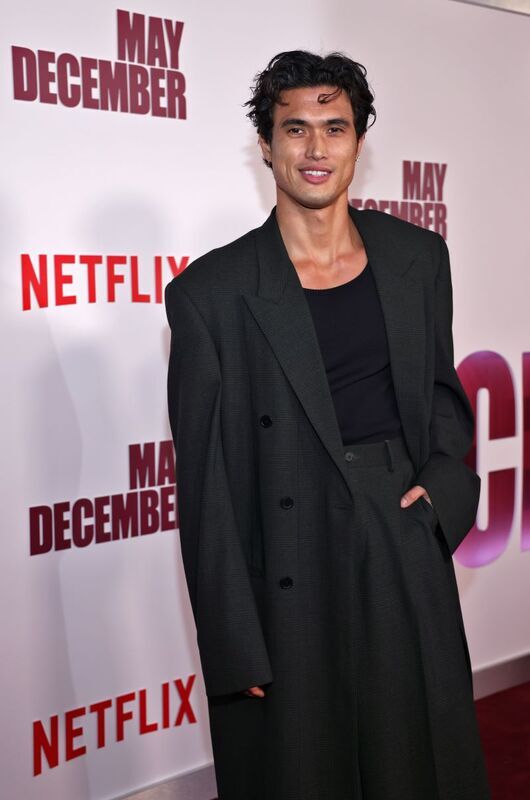
How was your first meeting with Todd?
Yeah, it was incredible. I remember meeting Todd in New York City for the chemistry read, where I first met Julie. And I remember standing outside the door listening to Julianne Moore and Todd Hayes talking about the scene. And I believe I was the first one to go in, and I went in there and immediately blacked out. But there's this comfort and trust that Todd had in me and encouraged me to lean into my instincts and my understanding of Joe. And when you have someone like Todd just guiding you along the way, I feel like anything is possible. I felt like I could really let go. We were so close, and we had many conversations about Joe; not so much about what Joe would look like, but what he would feel like. And that was all the internal work I would do in my preparation, and the collaboration with Todd really brought this character to life.
Were there any inspirations when it came to finding his mannerisms? I was just so enamored by the character’s dialect and how it's hard for him to express how he feels, especially when he's stressed.
Yeah. There’s a lot. So much can be said without saying anything at all. We can tell a story through physicality and kind of diving into it. This will sound so heady, but the psychology of just arrested development, repressed emotions, how they live in the body, and how they can translate. Joe doesn't move his mouth too much. He's afraid to be very pre-verbal and does not want to be seen or show himself. So, what would repression sound like? And it kind of comes from the gut and the throat, which is almost where his certain performances inspired me—for example, Heath Ledger's performance in "Brokeback Mountain." I mean, the feeling is similar, the sense of repression, but just how he kind of carries himself. Then Tony Leung in "In the Mood for Love," where he communicates so much with just his face and what's going on. I had a few things that I would just do; there’s much technical work that just transformed Joe’s external expression.
Within the span of 23 days, is there any way that you decompressed because it's such a heavy role? And you gotta take advantage of that island?
Yeah. We would hang out with Todd. We would hang with the crew and everybody on our days off, and I would come home and watch "Abbott Elementary" with my sister. We do acupuncture here and there. Twenty-three days is not that long, but there was a good balance to separate me from just the work. It was a testament to Todd. He really creates this environment that allows you to exist in your character and with your character, which is so expansive. And I've never worked like this before in my career.
How was it working with Natalie, Julianne, as, say, a rookie against all these powerhouses?
Rendy, when you have the opportunity to work with masters ... these icons are led by the legend of Todd Haynes. I felt so supported and elevated by just the proxy of being in the vicinity of Natalie and Julie. They’re so collaborative and open and just encouraging. I felt so taken care of, and it's surreal to talk about them right now. Even with you on the spot.
Is there any type of genre that you would like to play in the future, or do you want to like me a little more in drama?
Whatever I can do to be stretched. I would love to work with Todd Haynes again, obviously, but it’s just kind of something that really dives into just this. I'm really attracted to, for some reason, oppression and loneliness. But I feel like that can look so many different ways, whether it's comedy or anything. So, I just want to work with good filmmakers, writers, and directors.
"May December" is on Netflix now.
Rendy Jones (they/he) is a film and television journalist born and raised in Brooklyn, New York. They are the owner of self-published independent outlet Rendy Reviews, a member of the Critics' Choice Association, GALECA, and a part time stand-up comedian.
